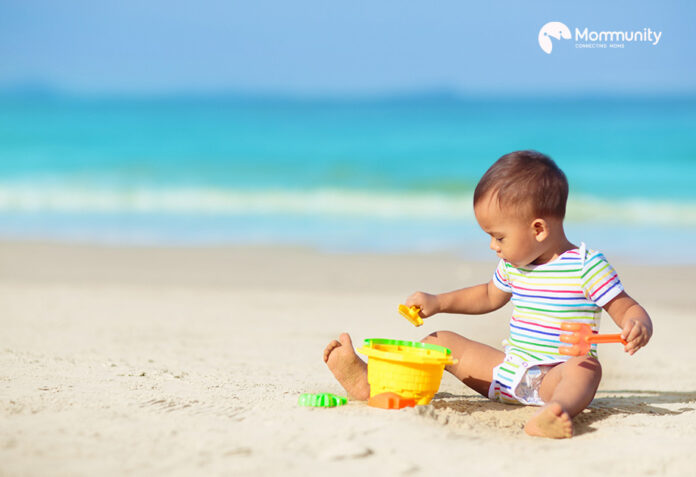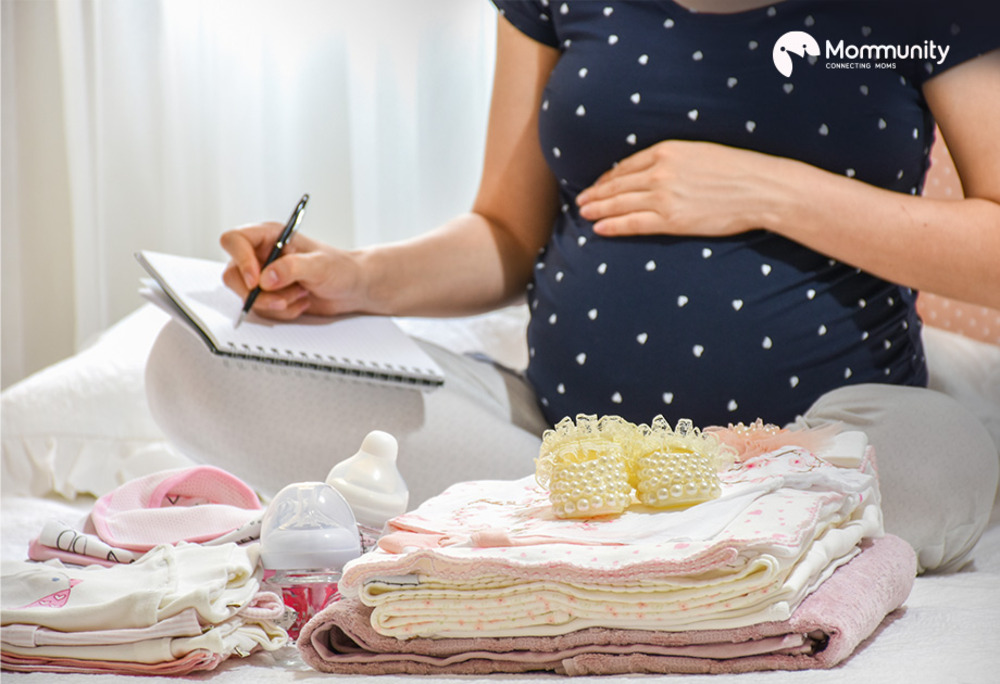Do you like a gentle breeze on your face and a footprint in the sand? Want to go on the beach to feel this. But now you have a baby and don’t know when can babies go to the beach. Then you have come to the right place.
In this blog, we will discuss when can babies go to the beach in detail. We will see the right time to take the baby at the beach, precautions, preparation, hacks, etc. So let’s dive into the blog.
When Can Babies Go To The Beach?
Generally, beach outings with babies are suggested after they are at least two months old, though some experts suggest waiting until they are six months old due to various safety and health factors. Here’s a breakdown of age-related considerations:
-
Newborns (0-2 Months)
At this age, babies have delicate immune systems and skin, making them highly susceptible to sunburn and overheating. Their bodies are still adjusting to the external environment, so it’s best to avoid extended sun exposure.
-
Two to Six Months
After two months, babies can start handling limited outdoor exposure, but you should still be careful. They can be taken to the beach for short visits in the early morning or late afternoon when the sun is less intense. Make sure they’re shaded and dressed appropriately.
-
Six Months and Older
Once your baby reaches six months, their immune system and skin barrier have developed further, making beach trips safer. Sunscreen is generally approved for babies at this age, allowing them to be protected from UV rays. With the right precautions, they can enjoy more extended beach visits.
Additional Recommendation:
According to the American Academy of Pediatrics, babies under six months should avoid direct sun exposure, so aim for shaded spots and dress them in lightweight, long-sleeved clothing. From six months onward, you can apply a baby-safe sunscreen to protect their sensitive skin.
3 Important Factors to Consider
1. Sun Exposure
Babies have sensitive skin that can burn quickly. Always choose a shaded area and use protective clothing like hats and long-sleeved rash guards.
2. Water Safety
Young children are at a higher risk of dehydration and hypothermia, so limit their water exposure and make sure they stay hydrated.
3. Temperature Sensitivity
Babies can overheat easily. Monitor the temperature and limit beach time during the hottest hours of the day.
Preparing for the Beach: Essential Baby Gear
To make sure a smooth and safe experience, make sure you have these essential items ready:
-
Pop-Up Shade Tent
Invest in a UV-protected beach tent or covering to shield your baby from the sun.
-
Baby Sunscreen (For Babies 6 Months and Older)
Choose a mineral-based sunscreen designed for babies.
-
Lightweight Blanket
A breathable blanket can be used to create a comfortable, shaded spot for your baby to rest.
-
Rash Guards and Sun Hats
Look for full-coverage clothing with a UPF rating to protect your baby’s skin.
-
Reusable Swim Diapers
These are more environmentally friendly and help prevent leaks during water play.
8 Baby Beach Hacks for an Enjoyable Experience
Make your beach day smoother with these parent-tested hacks:
1. Choose the Right Time of Day
Mornings before 10 a.m. and late afternoons after 4 p.m. are ideal for a beach visit with a baby. The sun is less intense during these times, reducing the risk of sunburn.
2. Create a Mini Sand-Free Zone
Use a fitted sheet as a base on the sand. Place bags or coolers at each corner to prop up the edges, creating a mini sand-free area where your baby can lie down or play.
3. Bring a Portable Fan
A small battery-powered fan can be a lifesaver on hot days, helping to keep your baby cool while they nap or play.
4. Pack Baby Powder for Easy Sand Removal
Applying a bit of baby powder to sandy skin helps absorb moisture, making it easier to brush the sand off. This trick works well for both you and your baby.
5. Prepare Snacks and Hydration
If your baby is old enough for solid food, pack a cooler with pre-cut fruits and healthy snacks. Breastfed or bottle-fed babies may need more frequent feeds to stay hydrated, so bring along extra milk or formula.
6. Keep Toys Simple and Easy to Clean
Bring a few beach-safe toys that can be easily rinsed off, like silicone stacking cups or soft rubber balls. Avoid plush toys as they’re harder to clean and can get damaged by sand and water.
7. Dress in Layers
Beach temperatures can be unpredictable. Dress your baby in layers, such as a swimsuit underneath a rash guard or cover-up, so you can easily adjust based on the weather.
8. Use a Waterproof Diaper Bag
A waterproof bag protects your baby’s essentials from sand and water, keeping items dry and ready for use. It’s also handy for storing wet or sandy items on the way home.
5 Safety Tips for Babies at the Beach
Beyond packing the essentials, consider these safety tips to ensure your beach outing goes smoothly:
1. Limit Water Time
Avoid submerging your baby fully in the water as they are more sensitive to temperature changes. A shallow play area near the shore can be sufficient for splashing fun.
2. Keep an Eye on Hydration
Babies are prone to dehydration, especially in the sun. Offer extra fluids, and if breastfeeding, plan for more frequent feeds.
3. Avoid Peak Sun Hours
The sun is strongest between 10 a.m. and 4 p.m., so plan your visit around these hours to reduce the risk of sunburn or overheating.
4. Watch for Signs of Discomfort
Babies can’t always communicate when they’re uncomfortable, so be on the lookout for signs of overheating, dehydration, or sunburn. Signs include flushed skin, excessive fussiness, or sweating.
5. Stay Alert for Beach Hazards
Keep a close watch on your baby and be mindful of potential hazards such as sharp shells, stones, or marine life in the sand. Creating a small play area can help contain them and limit exposure to these risks.
In the end, taking your baby to the beach can be a wonderful and memorable experience when you’re well-prepared and informed. By following the recommended guidelines on when and how to introduce your baby to the beach, you can make sure a safe, enjoyable outing for the whole family.
We hope by this blog you will get answers about when can babies go to the beach. From timing your visit to choosing the right protective gear and preparing for potential challenges, each step plays an essential role in making your beach day a success. With these precautions and beach hacks, you’ll be ready to enjoy a relaxing day by the shore, building beautiful memories with your little one while keeping them safe and comfortable. Happy beach day!




